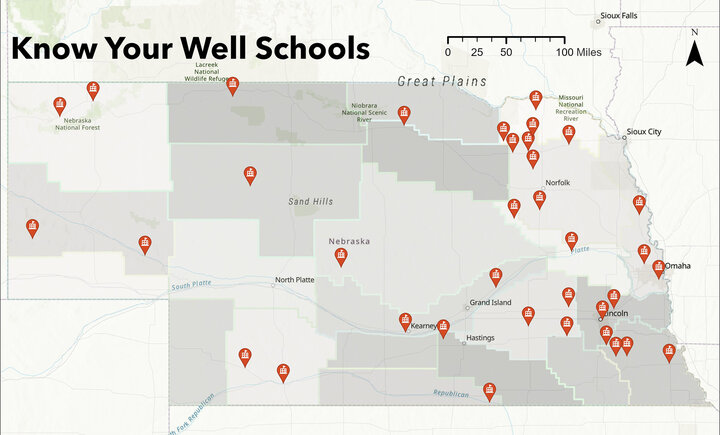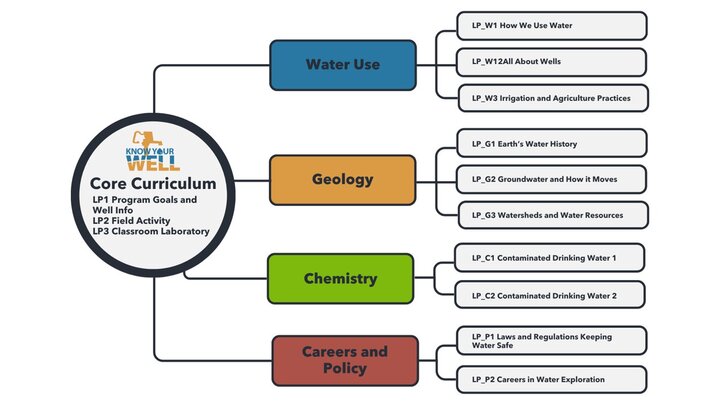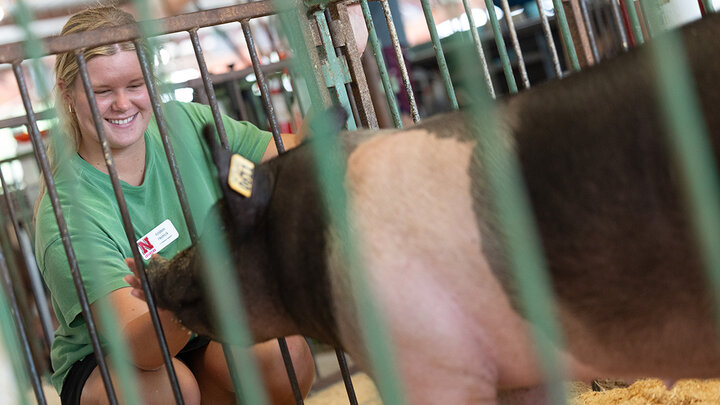The Know Your Well team held a workshop on June 12 at the Central Platte Natural Resources District Office in Grand Island to provide professional development for educators and regional leaders. The goal of this workshop was to update partners on curriculum development, introduce teachers to their corresponding groundwater protection program partners, and do a hands-on demonstration of well testing.
Lesson plans available for classroom use
The Know Your Well curriculum developers provided an overview of the lesson plans that are currently available. Existing lesson plans include water use, geology, chemistry, and water related careers and policy. The goal of the lesson plans is to make it easy for teachers in Nebraska and beyond to implement Know Your Well in their classrooms. They also aim to showcase the impact of water science on local communities while aligning with Nebraska state standards for science education.
These lesson plans were piloted in three schools across the state in the 2024-2025 school year and have been adapted with feedback from those test teachers and classrooms. The current lesson plans are available at go.unl.edu/KYWresources.

An overarching goal of the Know Your Well program is to empower high school students to interact with members of their community and practice talking about water quality and water science with people they don’t know. To facilitate this goal, the Know Your Well team outlined best practices, talking points, and requirements for interacting with well owners before, during, and after the testing process. By utilizing these guidelines alongside the classroom-ready curriculum, teachers have support to implement Know Your Well in their community. This is achieved by following a streamlined process for both class work and field work. Combining these resources also gives students support to successfully participate in the full Know Your Well process, from identifying wells to be tested and getting property owner permission to testing the water samples and reporting results to the property owner and the community.
Hands-on demonstrations
Collecting well water samples and testing them in a classroom setting is often a new experience for both Know Your Well educators and students. To provide a better understanding of the process, Know Your Well graduate student Sara Brock-Contreras and Know Your Well intern Julia Ramsey facilitated hands-on demonstrations for workshop attendees. Participants were able to collect samples from an on-site well at the Central Platte Natural Resources District office and test the samples themselves to gain a better understanding of the process.

“Because water is interdisciplinary, teachers approach this program from a variety of backgrounds.” Sara Brock-Contreras shared. “We offer hands-on training, multimedia instructional materials, and direct lines of communication to the Know Your Well team and local water quality experts so that teachers can confidently help their students do science in the field and classroom.”
Workshop participants were also able to test run the updated Know Your Well app, which is used to collect well data in the field. The updated app is more user friendly. Workshop participants benefited from experiencing the full data collection and testing cycle, including inputting the data into the app.
Clarifying program structure
The June 12 workshop wrapped up with an explanation of how different Know Your Well partners work together to implement the program. Different portions of the program are managed by regional leaders, classroom teachers, Water Sciences Lab staff, and other partners. In order to ensure smooth coordination of the program across the state, these partners were introduced to each other during the workshop.
Next steps for Know Your Well
Testing of the Know Your Well curriculum will continue throughout the 2025-2026 academic year. This testing is part of an EPA Environmental Education grant, which has been extended through the summer of 2026. The Know Your Well team will also be demonstrating the curriculum, app, and other program resources at the 2025 Great Plains Water Conference in September.



